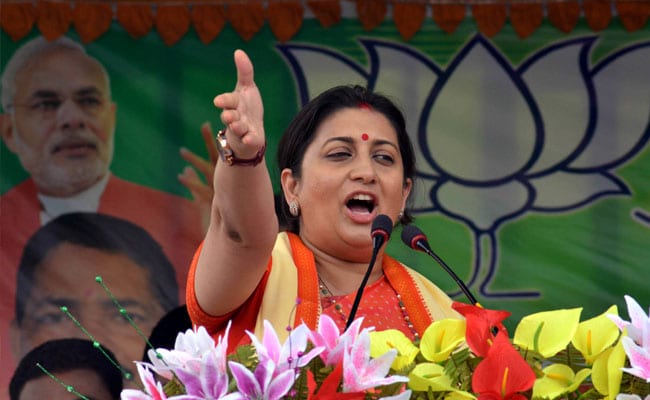One of the boxes I would have ticked, and still do on equal opportunities form, is that of gender. And for the existence of that box, mandatory on any such form, we have the early and second-wave feminists of the last century to thank. Many of their achievements - such as the right of women to work, to vote, and control their bodies have become commonsense and for many women, part of the reality they can take for granted. But too often we wake up to developments which reveal the precariousness of these hard-won achievements.
A recent piece on this website raised a good and important point about pro-women credentials of our women politicians amidst rampant misogyny in our society. What Barkha Dutt notices about Smriti Irani's casual misogyny towards her and more concerted misogyny towards a political rival found resonance in current British politics. The Tory Brexiteer Andrea Leadsom claimed that being a mother made her a much more suitable Prime Minister than her rival in the Conservative Party leadership battle Theresa May, who has nephews and nieces, but no children of her own.

BJP’s Smriti Irani addressing party workers during an election campaign rally in Assam in March 2016
Too many recent developments such as these seem to indicate that all that the first and second wave feminists fought for has now gone out of the window, or more accurately, become hostage to expedient and/or token feminisms. While a number of women today hold public office simply or primarily because of their gender - from all-women panchayats to Pratibha Patil's presidential tenure - others, who self-identify their position as meritocratic, from Smriti Irani to Andrea Leadsom, expediently use their status qua woman usually to fend off the opposition, and are seldom rooted in a feminist politics.

British politician Andrea Leadsom at a rally in London last week
Expedient politics is different. Regardless of their individual trajectories, for women like Leadsom and Irani, it is sometimes useful being a woman. Neither Irani in India nor Leadsom in the UK would have quite had the career they have had in the absence of the foundational work of feminist politics, of which they are undoubtedly beneficiaries. The success (as well as the failure) of that foundational work lies in women like Leadsom and Irani being able to forget that history. While they are often quick to seek refuge in the space created by feminist politics and point out any hostile interlocution as misogyny (and on many occasions, it is indeed so), at the same time, the irony of scarcely thinking twice before running down the sisterhood themselves, accusing them of not being the right wholesome, pre-feminist throwbacks, is entirely lost on them. This is because theirs is an expedient feminist position, where the history, politics, and the values of feminism is incidental to their pursuit of power and privilege, and unlike even the tokenist kind, is not anchored in any ideal other than being self-serving.
(Kriti Kapila teaches anthropology at the India Institute, King's College London.)
Disclaimer: The opinions expressed within this article are the personal opinions of the author. The facts and opinions appearing in the article do not reflect the views of NDTV and NDTV does not assume any responsibility or liability for the same.


